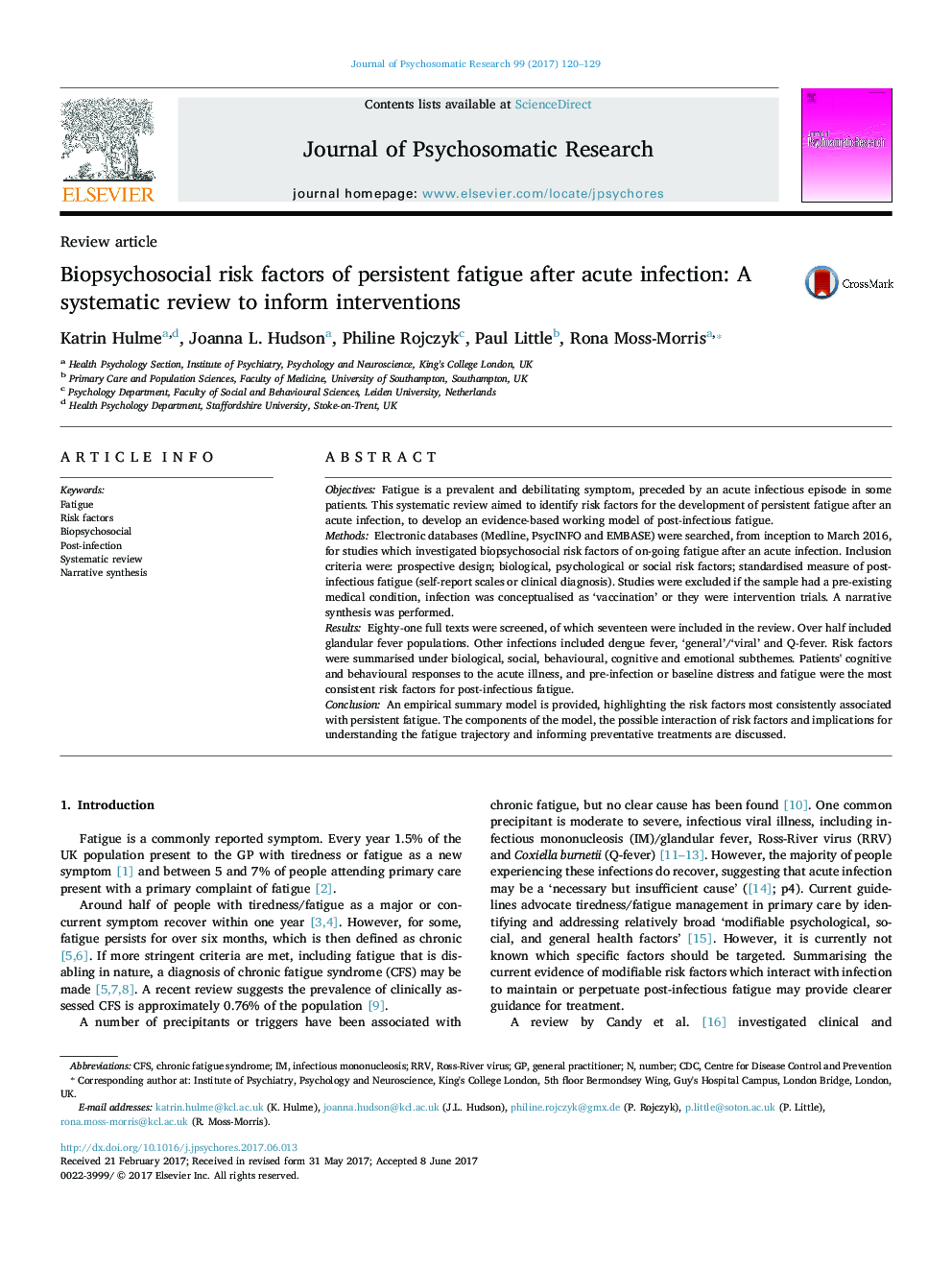| کد مقاله | کد نشریه | سال انتشار | مقاله انگلیسی | نسخه تمام متن |
|---|---|---|---|---|
| 5045879 | 1475896 | 2017 | 10 صفحه PDF | دانلود رایگان |
- Immune response markers were risk factors for acute but not chronic fatigue.
- Consistent risk factors centred around cognitive/behavioural illness responses.
- Distress and fatigue at time of infection were common risks across infections.
- Large longitudinal studies would clarify the complex interaction of risk factors.
ObjectivesFatigue is a prevalent and debilitating symptom, preceded by an acute infectious episode in some patients. This systematic review aimed to identify risk factors for the development of persistent fatigue after an acute infection, to develop an evidence-based working model of post-infectious fatigue.MethodsElectronic databases (Medline, PsycINFO and EMBASE) were searched, from inception to March 2016, for studies which investigated biopsychosocial risk factors of on-going fatigue after an acute infection. Inclusion criteria were: prospective design; biological, psychological or social risk factors; standardised measure of post-infectious fatigue (self-report scales or clinical diagnosis). Studies were excluded if the sample had a pre-existing medical condition, infection was conceptualised as 'vaccination' or they were intervention trials. A narrative synthesis was performed.ResultsEighty-one full texts were screened, of which seventeen were included in the review. Over half included glandular fever populations. Other infections included dengue fever, 'general'/'viral' and Q-fever. Risk factors were summarised under biological, social, behavioural, cognitive and emotional subthemes. Patients' cognitive and behavioural responses to the acute illness, and pre-infection or baseline distress and fatigue were the most consistent risk factors for post-infectious fatigue.ConclusionAn empirical summary model is provided, highlighting the risk factors most consistently associated with persistent fatigue. The components of the model, the possible interaction of risk factors and implications for understanding the fatigue trajectory and informing preventative treatments are discussed.
Journal: Journal of Psychosomatic Research - Volume 99, August 2017, Pages 120-129
